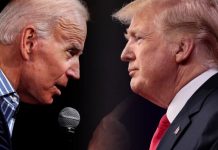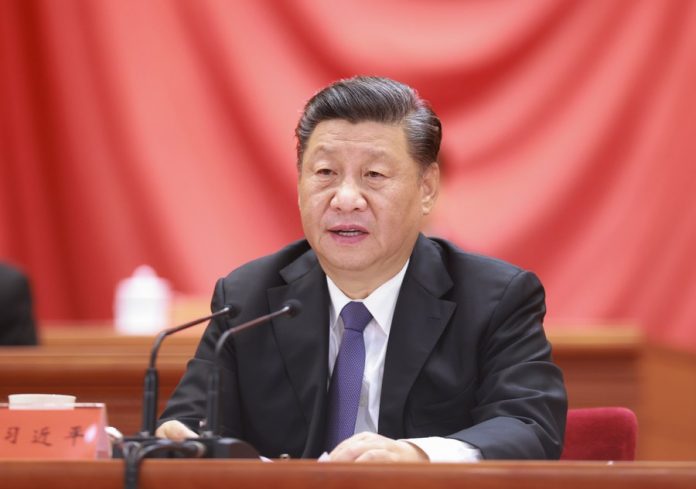Observers are asking whether Xi Jinping, about to be reappointed to another term as the leader of China, is the new Mao. Some of the accoutrements are there, but the real question is whether he’ll become a viler version of Russian President Vladimir Putin.
At its congress next week, the Chinese Communist Party is expected to appoint Xi to a third five-year term, after he engineered the removal of the two-term limit. What is happening is the result of a summer of jostling among the 25 members of the Politburo. Xi is not a dictator, but rather what the Party wants.
If indeed appointed, in three years Xi will pass Ziang Zemin to become the longest-serving party chief after Mao; he has given himself an exception to the age limit of 68 for running for new office; he has taken to occasionally wearing Mao-type clothing and is promoting a personality cult unlike his post-Mao predecessors; the state media seems about one step away from starting to call him „Great Leader” as well.
Under Xi, China has been more repressive than in decades: it attempts to forcibly assimilate Uyghurs and other minorities, is less capitalistic (favoring state companies over private enterprise), and less tolerant of dissent within the Party. Under the guise of an anti-corruption drive, Xi’s rivals have in large part been purged.
It seems unlikely that Xi will prove capable of lunatic cruelty such as the Great Leap Forward and the purges of the Mao era. China is a vastly more industrialized country than the agrarian backwater it was then, and its people are—despite the censorship—more sophisticated and informed. Xi seems a rationalist who knows Mao-level repression could bring on unwelcome instability and offer little.
Indeed, he has tried to court public opinion with nationalism, and that’s where it gets dangerous. If he starts taking seriously his own bluster about „reunification” with Taiwan, the result could be a global conflict that would make the Ukraine war seem like a polite disagreement.
The reasons for this may have to do with the truth about China’s economy, which the credulous think will supplant the United States’ as the world’s most influential.
About 1.5 billion people will always carry a big stick in a global population of 8 billion people, but will China punch above its weight the way the United States has, and does?
The global economy is estimated at $85 trillion. China, at $14.7 trillion, accounts for 17 percent, just under its 18 percent proportion of the population—even after three decades of galloping growth, which has recently slowed. By comparison, the U.S. has just over 4 percent of the world’s population and about a quarter of the global economy. That’s what above-weight-punching looks like.
Moreover, no one knows whether to believe China’s official numbers, but what is known is that much of the recent years’ growth was fueled by a huge construction boom, itself driven by a credit bubble that is now collapsing.
Clearly the world economy depends on China for cheap goods and its demand for raw materials. But as China becomes more prosperous its labor force becomes more expensive and thus less attractive, making this dependence a poor plan for the future. And having to pull punches with Russia as it ravages Ukraine because of China’s energy dependency has given rise to revisionist thinking on globalization: rather than create interdependencies that keep everyone in check, perhaps it rewards bad behavior?
Oddly, if China really wanted to have the world over a barrel, it would need to control Taiwan, which makes 65 percent of the world’s semiconductors and almost 90 percent of the advanced chips.
That is not the only reason why China covets the island—with more bellicosity under Xi than before—but it is certainly a central reason why the West will not be eager to see „reunification” between the mainland and the territory of about 24 million people.
For the Chinese, invading Taiwan could prove difficult and costly, as it would require crossing the 100-mile-wide Taiwan Strait to reach motivated and Western-armed opponents on inhospitable ground. And like with the Ukraine war, it would put the aggressor in the preposterous position of being one of the world’s largest countries risking much to make itself slightly larger.
The U.S., meanwhile, equivocates on Taiwan as nowhere else. It goes back and forth on whether it would defend it. And while being Taiwan’s largest arms supplier, it maintains a posture of „strategic ambiguity,” motivated by the desire to appease China in a manner that’s unseemly. To appease Beijing, the U.S. has no formal diplomatic relations with Taiwan—a fist-bump level of indignity.
For the West, the appalling human rights situation in China presents a Good Samaritan dilemma. Do you allow your neighbor to beat his children because it’s none of your business? In world affairs, the default answer is yes—until a dictator goes too far by harming others as well. Iraq’s Saddam Hussein did that. Putin is getting there fast.
If Xi invaded Taiwan he would be in the same position. While the world needs China more than it needs Russia, there will be considerable willingness to make China pay, certainly economically. Without trade, there will be no miraculous growth—which would devastate the Communists’ deal with the people: prosperity in exchange for their freedom.
The people of Taiwan do not wish to be ruled by the Chinese Communist Party. Which is not great surprise, because we’d probably struggle to find a single group of people on the planet who wish to be ruled by the CCP.
I would not be surprised if the people of China itself are no exception. Today they cannot freely speak their minds, and they do not have a free flow of information, with the internet severely censored and news controlled by the Xinhua agency, which is in effect a branch of the CCP.
Does anyone want to bet that, offered the chance to slip the domination of a privileged and tiny cabal operating in the dark, the people of China would gladly do so? I would take that bet.
This article was published in Newsweek.

















